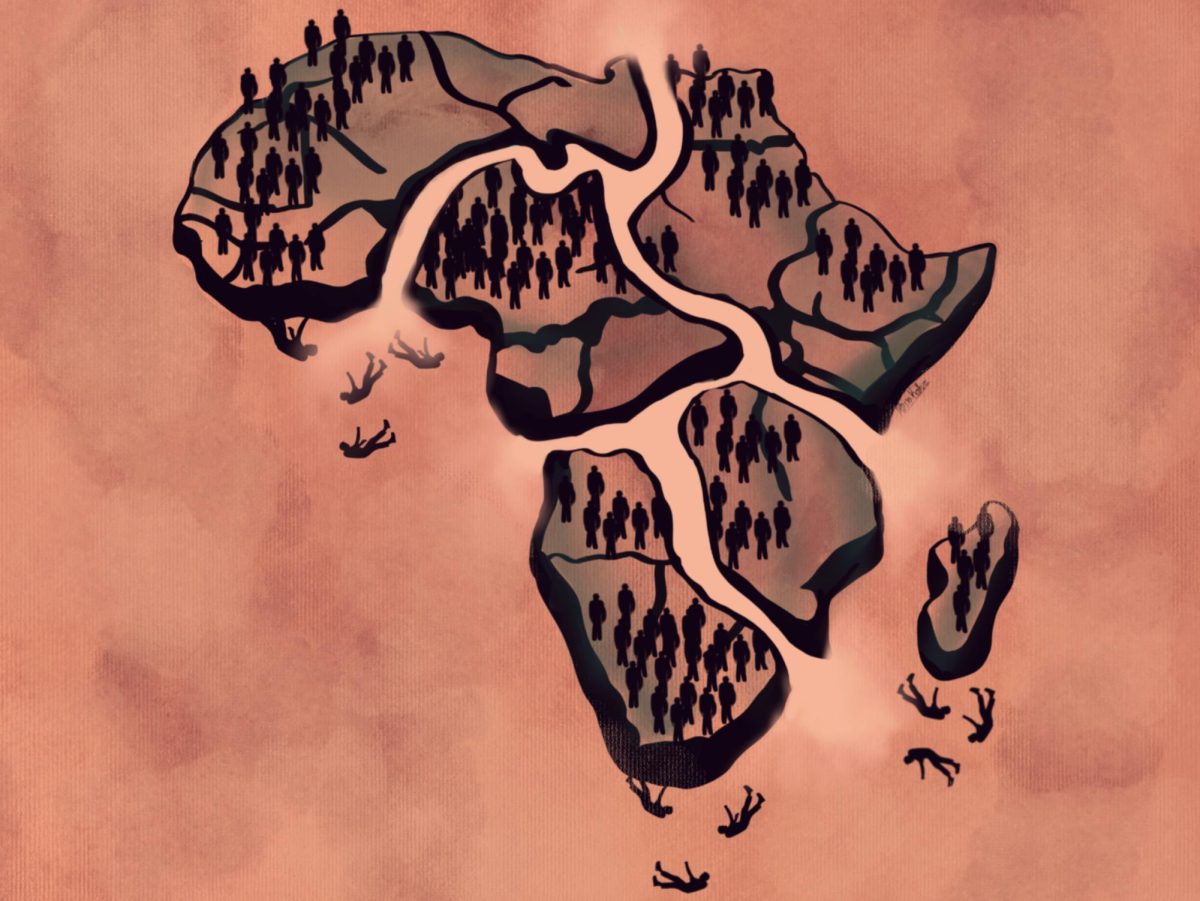ISIS: A Spark That May Burst into a Flame
October 6, 2014
ISIS, or the Islamic State of Iraq and al-Sham, started out as a spark, an easily containable light in the darkness that can be extinguished if anyone cared enough to deal with it. But now, because the United States could not stand getting its fingers burned, ISIS has spread beyond its origins, beyond its boundaries and beyond the world’s comprehension. What objective the Islamic state militants have in mind we cannot conclude, but we know it threatens the security of the world, especially the United States’, who is its principal western target.
Let us start with the charred remains that provided fuel to the fire of ISIS. It started with the Iraq War, which was a very drawn-out coup d’état of the Saddam regime. The ruling Ba’ath Party dissolved and a puppet government was constructed. But in fewer than three years, the puppet government set up by the U.S. was overthrown, and ISIS and other loyalists to the former Ba’ath Party gained power.
ISIS had become a small flame: dangerous if within the region, but still manageable if you act quick. But ISIS took upon itself to expand its influence by rallying extremely anti-western personnel who support their cause. ISIS has bloomed into a full flame in this stage.
As a fire is destructive and unmerciful towards innocents, ISIS is more so. Amnesty International, a human rights organization, states that the terrorist group has turned northern Iraq into “blood-soaked killing fields”. ISIS-occupied regions are plagued with ethnic cleansing. Assyrian Christians, Yazidis, Turkmen, Shabaks and other ethnic groups are executed. Women and children as young as 12 are rounded up and shot and neutral victims are beheaded. Recently, ISIS has also beheaded westerners. In response, over 50 countries have pledged airstrikes on ISIS. What is even more surprising is that the infamous terrorist group al-Qaeda had close ties to ISIS, but cut those ties because of their brutality, meaning ISIS has grown so large it is too difficult to cooperate with.
So if 50 countries have pledged to bomb the living daylights of ISIS, what is there to worry about? First of all, this is a threat like no other we have ever seen. Syrian President, Bashar al-Assad and Russian President Vladimir Putin were very cautious. ISIS is not. ISIS, rising from the ashes of the Iraq War, makes threats to the West. They are ambitious and have as many as 31,500 troops, all mustered within a small, confined area. ISIS has also expanded into the Syrian Civil War. They technically fight for neither side, but instead for territorial power. It is only a matter of time before they spread into the Israeli-Palestinian conflict and attempt to take the land over too.
So what do we do? Who do we support? President Barack Obama already took the initiative and orders airstrikes on ISIS exclusively. We are currently aiding the Rebels, and recruiting the Rebels to fight for us on the ground.
But that is where Congress has it wrong. The Syrian Free Rebels have already been fighting a bloody and exhausting war for three years, and resources are probably exhausted. They do not have the numbers or the power to fight for the world. Airstrikes, I predict, will not be effective.
Fire also casts ambers, smaller sparks that shoot outward from the fire. However small these ambers are, they can start another fire even from far away. ISIS is currently at the “amber” phase. With their high recruitment rates and their highly esteemed cause amongst extremists, people from around the world, even in western countries, join the militants in combat. The sparks have reached us in America. According to the National Counter-terrorism Center, about 100 Americans have tried to join ISIS.
The situation is dire. ISIS is at the amber phase, and it is only a matter of time before they advance to the two final phases. The next phase is the uncontrollable phase, where the fire has grown so big that there is no option other than to let it burn. The last, and final phase is the ashes phase. Say a fire burns a house, the possessions within, and the people living there, into ashes. This is an irreversible chemical reaction; once everything has been turned to ashes, there is no rebuilding, no second chance to undo the burning. Sure, the house may be reconstructed, but the horrible memories will lie within that newly built house.
ISIS might reach the uncontrollable phase, and at that point, it will only take full military action (ground troops, tanks, airstrikes, drones) to stop them. But in the origin where ISIS first started as a spark, a small flame, it has already reached the ashes phase. Innocents were massacred, civilians recruited, battlefields littered with the corpses of anti-ISIS fighters.
But there is time. Now is the time to go to war. Now is the time to go to full-fledged war, because if we don’t, what is to say ISIS will not reach the final stage of the fire analogy? I am not here to scare you; I am here to inform you of the truth, and I will tell you the truth. We are not safe. None of us are. Not until the United States steps up its involvement and stops the dangerous ISIS group from letting the world burn.






